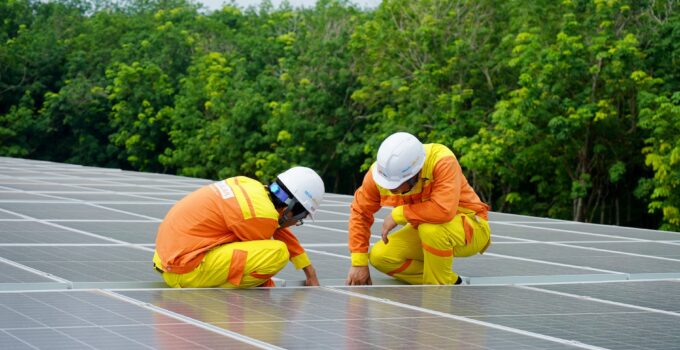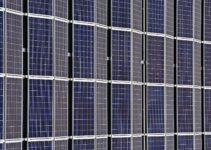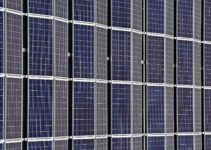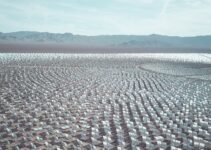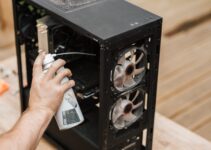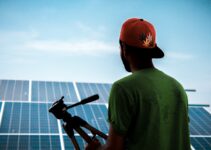Have you ever wondered how long solar panels can last without sun? Solar panels are a popular and sustainable source of energy, but what happens during sunless periods?
In this ultimate guide, we will explore the lifespan of solar panels without sun, factors affecting their durability, storage options, maximizing efficiency, extending lifespan through maintenance, and backup power solutions for sunless days.
Understanding the Lifespan of Solar Panels
Solar panels are designed to last for a long time, but how long can they actually function without sunlight? On average, solar panels can continue producing electricity for up to 2-3 days without direct sunlight. However, this duration can vary depending on various factors.
1. Factors Affecting the Durability of Solar Panels
The durability of solar panels is influenced by several factors. Let’s take a closer look at some of these factors:
- Solar Panel Quality: High-quality solar panels are built to withstand harsh weather conditions and can last longer than lower quality panels.
- Temperature: Extreme temperatures can affect the performance and lifespan of solar panels. High temperatures can cause the panels to degrade over time.
- Humidity: Excessive humidity can lead to corrosion and damage to the panels over time.
- Installation: Proper installation plays a crucial role in the longevity of solar panels. Poor installation can lead to structural issues and decreased performance.
2. Exploring Solar Panel Storage Options
During sunless periods, it is essential to have a storage solution for the energy generated by solar panels. Here are some popular solar panel storage options:
- Battery Storage: Storing excess energy in batteries allows you to use it when the sun is not shining. This option provides a reliable backup during sunless days.
- Grid Connection: Connecting your solar panel system to the grid allows you to export excess energy and import it when needed. This ensures a continuous supply of electricity, even without sunlight.
Maximizing Solar Panel Efficiency during Sunless Periods
During sunless periods, it is crucial to maximize the efficiency of your solar panels to make the most out of the available sunlight. Here are some tips to improve efficiency:
1. Regular Cleaning
Regularly clean your solar panels to remove any dirt, dust, or debris that may obstruct sunlight. This will help maximize the amount of energy absorbed by the panels.
2. Tilt and Angle Adjustment
Adjusting the tilt and angle of your solar panels can optimize their exposure to the sun’s rays. This will enhance their efficiency, especially during sunless periods.
3. Using Sun Tracking Systems
Sun tracking systems allow solar panels to follow the sun’s movement throughout the day, maximizing their exposure to sunlight. This can significantly improve their efficiency, even during sunless periods.
Extending the Lifespan of Solar Panels with Proper Maintenance
Proper maintenance is essential to extend the lifespan of your solar panels. Here are some maintenance tips:
1. Regular Inspection
Regularly inspect your solar panels for any signs of damage or wear. Addressing issues promptly can prevent further damage and extend their lifespan.
2. Cleaning
Regularly clean your solar panels to remove dirt, dust, and debris. This will ensure optimal performance and prevent any potential damage.
3. Professional Maintenance
Consider hiring a professional to conduct regular maintenance and check-ups on your solar panel system. They can identify and address any potential issues before they become major problems.
Planning for Sunless Days: Backup Power Solutions
Even with proper maintenance and efficiency optimization, there may still be days when solar panels cannot generate sufficient electricity. To overcome this challenge, consider implementing backup power solutions:
1. Battery Backup
Investing in a battery backup system allows you to store excess energy generated by your solar panels. During sunless periods, you can rely on the stored energy to power your home or business.
2. Generator Backup
Installing a generator as a backup power source ensures a continuous supply of electricity during sunless days. Generators can be set up to automatically kick in when solar panels are unable to meet the energy demand.
Frequently Asked Questions
Q: How long can solar panels generate electricity without sunlight?
A: Solar panels can typically generate electricity for 2-3 days without direct sunlight, depending on various factors such as panel quality, temperature, and humidity.
Q: Can solar panels work during cloudy days?
A: Yes, solar panels can still generate electricity during cloudy days, although the energy output may be reduced. Cloud cover reduces the intensity of sunlight reaching the panels, but they can still produce power.
Q: Is it necessary to have a backup power solution for solar panels?
A: Having a backup power solution, such as battery storage or a generator, is advisable to ensure a continuous supply of electricity during sunless periods. It provides peace of mind and prevents disruptions to your power supply.
Expert Advice
When it comes to how long solar panels can last without sun, it’s essential to consider the various factors that can affect their durability. Investing in high-quality panels, implementing proper maintenance, and having backup power solutions are key to maximizing their lifespan.
Remember to regularly inspect and clean your solar panels to optimize their performance. If you’re unsure about any aspect of solar panel maintenance or need assistance with backup power solutions, consult a professional for expert advice.
